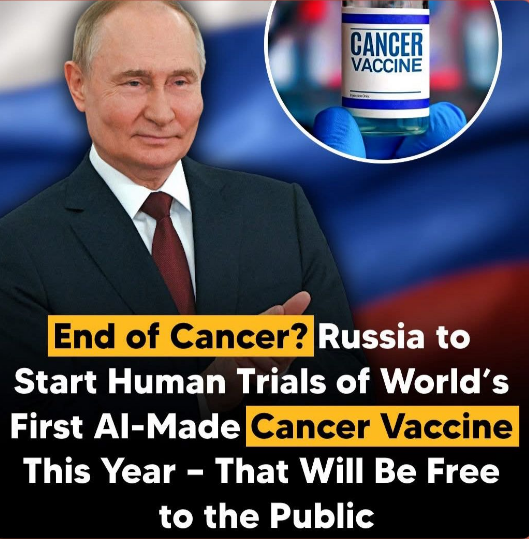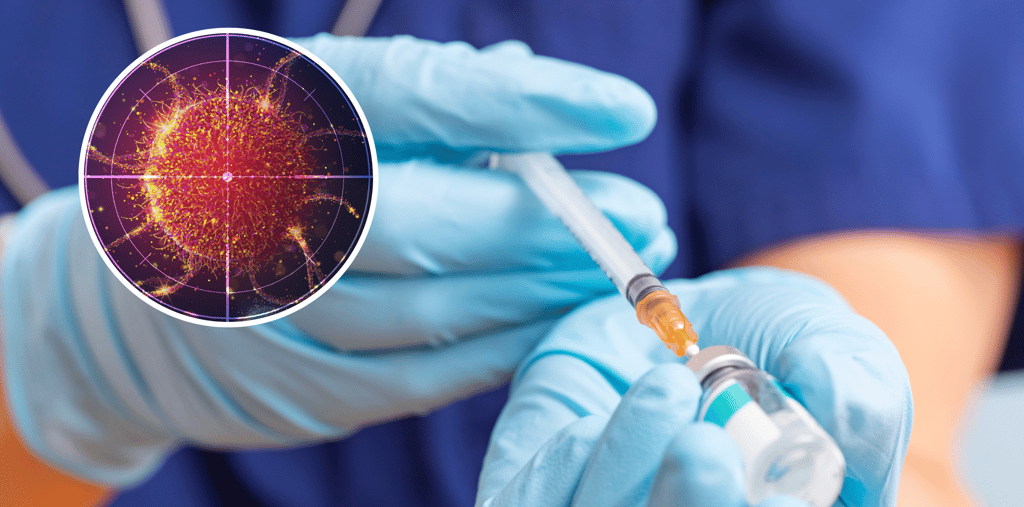Do You Know Why Russia Is Launching Human Trials of the World’s First AI-Made Cancer Vaccine in 2025
In a groundbreaking medical development, Russia’s Gamaleya Center—the creator of the Sputnik V vaccine—has announced human trials in late 2025 for the world’s first personalized, AI-developed mRNA cancer vaccine. Tailored to a patient’s tumor genetics and offered free of cost to Russian citizens, this innovation marks a new era in immunotherapy.
WORLD & POLITICS
Do You Know Team
8/17/20253 min read


Imagine a cancer vaccine in which artificial intelligence analyzes your unique tumor, crafts a personalized mRNA blueprint, and delivers targeted treatment—all within a week. This is no longer science fiction. Russia’s Gamaleya Center has announced plans to begin human clinical trials for the world's first AI-designed, personalized mRNA cancer vaccine targeting melanoma—and potentially other cancers—by September–October 2025. Even more astonishing: it will be administered free of charge to Russian citizens.
Here’s why this is not just a cancer treatment breakthrough—but a potential paradigm shift in global healthcare.
1. Gamaleya Center: From Sputnik V to Cancer Immunotherapy
The Gamaleya National Research Center of Epidemiology and Microbiology rose to global prominence for its rapid development of the Sputnik V COVID-19 vaccine. Now, it has transitioned its expertise to the cancer field, leveraging its immunology foundations and infrastructure to develop a personalized cancer vaccine.
2. Creating Personalized Vaccines Using AI
What makes this vaccine revolutionary is its AI-powered personalization:
AI analyzes the patient’s tumor genome to identify unique neoantigens.
It then rapidly constructs a personalized mRNA blueprint.
The entire process—from tumor sequencing to vaccine production—can be completed in about one week.
3. Preclinical Success: Suppressing Tumors in Animals
Before human trials, the vaccine showed promising results in animal models:
Significant tumor growth suppression
Reduced metastasis, especially in melanoma
Encouraging outcomes even against aggressive cancer forms like adenocarcinoma
4. Human Trials Starting Late 2025
Human clinical trials are expected to begin in September or October 2025, pending regulatory clearance this summer. These trials will take place at the Hertsen Research Institute and the N.N. Blokhin National Medical Research Center of Oncology in Moscow.
5. First Target: Melanoma, with Expansion Plans
The vaccine will first target melanoma, a deadly form of skin cancer. The plan is to expand later to other hard-to-treat cancers like pancreatic, kidney, and non-small-cell lung cancers.
6. Free Vaccine for Russian Citizens — State-Funded
A remarkable feature of this initiative is its accessibility:
Each personalized dose costs about 300,000 rubles (~USD 2,870).
The Russian government intends to provide it free of charge to all eligible citizens.
7. A New Regulatory Pathway for Personalized Medicine
Russia is adopting a distinct regulatory framework tailored specifically for individualized mRNA therapies, bypassing traditional drug approval protocols to maintain pace with technological advancement.
8. How It Works — From Tumor to Vaccine
The vaccine creation process:
Tumor biopsy and genome sequencing
AI algorithm identifies target antigens
Custom mRNA is synthesized to code cancer-specific proteins
Injection triggers immune response to destroy tumor cells
9. Global Context — How Russia’s Approach Stands Out
Other nations, including the U.S., UK, and Germany (e.g., Moderna, BioNTech), are pursuing personalized mRNA cancer vaccines—but Russia’s emphasis on free access and AI-based speed sets this initiative apart.
10. Why It Matters for Global Health
This development is more than a breakthrough in Russia — it signals major advancements in:
Personalized immunotherapy
Rapid vaccine design using AI
Accessible, affordable cancer care
If successful, it could inspire similar programs globally.
FAQs
Q1: Is this Russia’s first AI-designed vaccine?
Yes. This is believed to be the world’s first AI-designed, personalized mRNA cancer vaccine entering human trials.
Q2: Why melanoma first?
Melanoma is immunogenic and aggressive, making it a suitable initial target for testing immunotherapy efficacy.
Q3: Will it be available outside Russia?
Currently, the vaccine is state-funded for Russian citizens. International availability would depend on global trials and regulatory approval.
Q4: Can the vaccine adapt to new cancer types?
Yes. The AI-based platform allows quick adaptation to various cancer mutations — plans include lung, pancreatic, and kidney cancers.
Q5: Is the approval process safe?
Russia is using a specialized approval pathway for personalized therapies. Safety trials will verify effectiveness before general use.
Conclusion
Russia’s upcoming human trials of the AI-made personalized cancer vaccine mark a bold leap forward in healthcare—combining AI, mRNA technology, and public accessibility. Within 2025, patients could receive tailor-made treatments targeting their specific tumors—and without financial burden.
If successful, this initiative could fundamentally change how cancer is treated at a global level—making precision, speed, and equity the new standard in oncology.
#AILab #CancerVaccine #Russia2025 #mRNATherapy #DoYouKnow #MedicalBreakthrough #CancerResearch #AIinMedicine #HealthTech #PersonalizedMedicine


Knowledge
Empowering minds with reliable educational content daily.
Newsletter Signup
© 2025 DoYouKnow. All rights reserved.
Stay Ahead of the Trends – Join Our Newsletter
